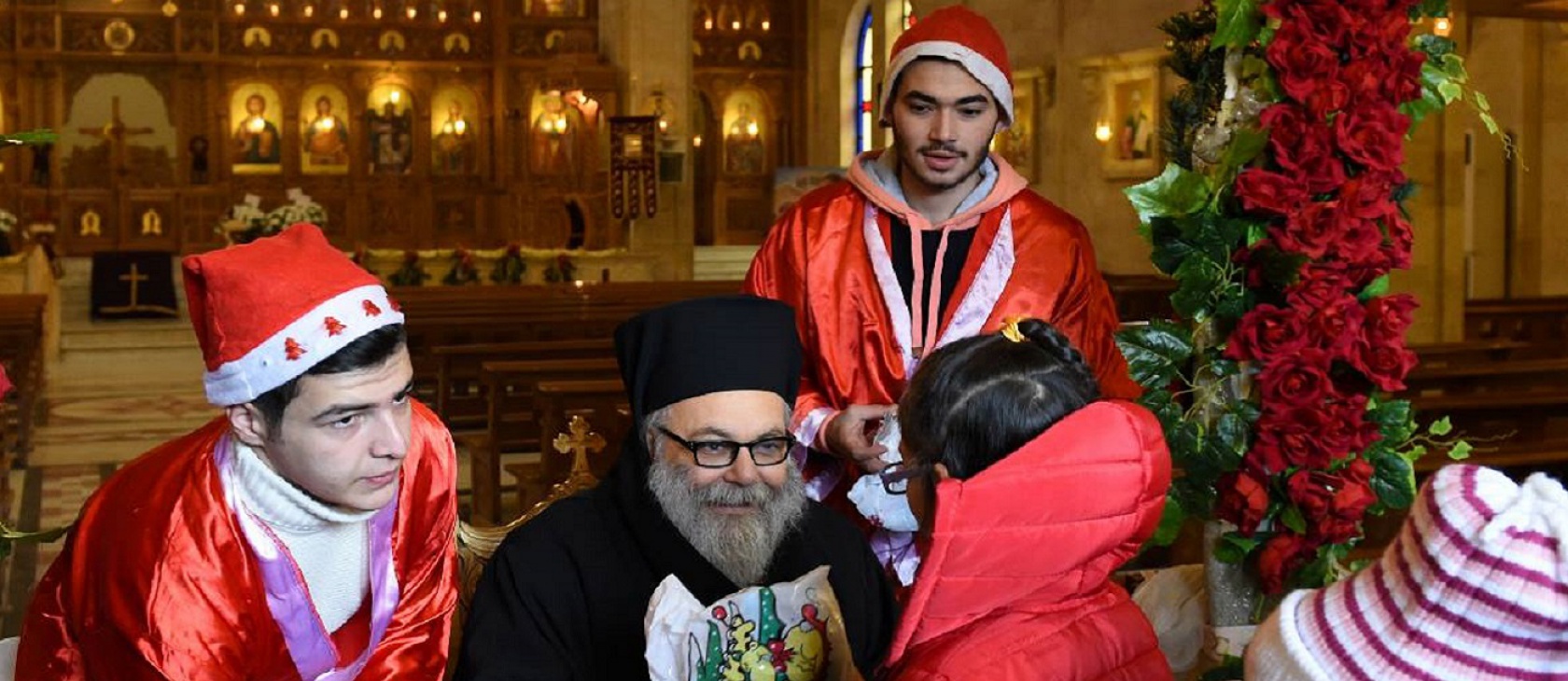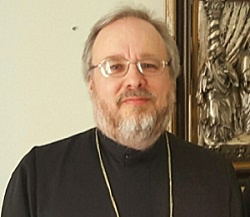It is surely significant that as soon as the people of Aleppo found themselves liberated from the murderous and brutal control of the Islamic State, they gathered together whatever they could and, in the ruins of their city, celebrated Christmas. The Christmas tree had been left unlit since 2012 when ISIS took control, but this year it became a focus of public celebrations of liberty, while the churches were filled with crowds of Christians finally able to keep the Feast of the Nativity in some safety now that government forces had driven ISIS from the city.
Such public celebrations, shared experiences rooted in particular histories and traditions, are a necessary aspect of a healthy society. The Christmas festivities in Aleppo were an expression of the Christian good news of peace on earth through the incarnation of God. But they were also an opportunity for the community as a whole to witness to the liberty which had been restored to them, so that one of the important traditional events of the local calendar could be observed. It is such shared commemorations which define and sustain a society, and the loss of such opportunities cannot help but lead to the weakening of social ties, and the undermining of any particular society.
Throughout England in the sixteenth and seventeenth centuries, there were similar assaults on the ancient Christian traditions which had been a significant basis of a cohesive society for a thousand years. Pilgrimages, shrines, and holy days were banned from the time of Henry VIII, and relevant to this season, the celebration of Christmas was forbidden during the English Commonwealth – not only with a prohibition on church services, but with the penalisation of any public revelry. This opposition to what was an important social commemoration by the revolutionary political class was intended to undermine the traditional English culture of Christian feast and social festivity, and support the imposition of a new more puritanical culture and society altogether.
In recent years, the celebration of Christmas in the UK has again been subject to controversy. It is presented by some, who share with both the radical politicians of the Commonwealth and the members of ISIS a wish to change the nature of our society, as if the keeping of this festivity is oppressive and harmful to the common good. There is a low-level sense being inculcated in public bodies and services that celebrating Christmas is rather unprofessional, if not offensive and discriminatory. For instance, the city of Stoke-on-Trent renamed Christmas “Winterfest.”
Public celebrations – shared experiences rooted in particular histories and traditions – are a necessary aspect of a healthy society.
We might also note the lack of any meaningful celebration of St George’s Day as a national festival, and a rejection by the political class of the English national identity, as if any public expression of English cultural tradition was inevitably racist and offensive. Earlier this year Bristol City Council failed to commemorate St George’s Day in any way, stating, “We don't normally tend to do anything, as Bristol is a city with 91 different languages and it would be very difficult to commemorate them all.”
But this is exactly why the preservation of the historical traditions of the British Isles and people is so important. To act as though every one of the 91 or more cultures represented in Bristol should receive exactly the same degree of public notice is to have already determined that the British culture and heritage which defines the British people is of no relative importance at all. If there is no British culture and society worth supporting in this way, then surely what is being proposed as the social ambition of political elites in Bristol and across the nation, is that 1,500 years of a coherent and cohesive British culture and society be supplanted by a fragmented and competing social landscape of 91 or more societies with little in common beyond geography.
Many of those disparate groups came to the UK to enjoy its prosperous economic conditions and, perhaps its freedom of expression or religion. However, the economic dynamism and spirit of religious tolerance is rooted in a uniquely British culture, built upon its expression of Western values rooted most significantly in its adherence to the Christian faith and the morality of the Ten Commandments.
To discard this from public memory is to misunderstand the meaning of the calendar of social commemorations, so deeply rooted in our British history and tradition. Far from excluding others, they have the function of including all. Christmas, as celebrated by the British, was and is both a joyful Christian celebration of the birth of Christ and a social expression of a shared life in liberty. St George’s Day is functionally – together with St. David’s Day, St. Andrew’s Day, and St. Patrick’s Day – intended as a reinforcement and strengthening of patriotic social bonds among all those who identify themselves as English, Welsh, Scots, and Irish, whatever their ethnic origins. In the same way Armistice Day, all of the anniversaries of the First and Second World Wars, the Diamond Jubilee, the Queen’s Birthday, and every other celebration have the potential to sustain the coherence of our British society rather than to exclude and divide.
To be British, or English, or Scots, or Welsh, or Irish, is to share in these cultural and traditional expressions of our shared society, irrespective of natural ethnicity and background. It is in the context of a unity in liberty to celebrate these events that all of us may become part of this one society. Nor are natural and ethnic differences entirely sublimated, but they find their proper place when we are able to join together in the cultural traditions of the British culture, of the culture that is able to make others welcome because of a shared cultural inheritance and not despite it.
As soon as the people of Aleppo found themselves at liberty they expressed their social coherence in a public celebration of a shared event which was rooted in their own history and tradition. They were saying: We are still here, and we are free! How much do we also need to find such a similar attitude in our British circumstances, because it is only in the expression of our own culture and history that we can preserve, and even revive, the experience of celebrating together, celebrating something meaningful together, which is the basis of society.




